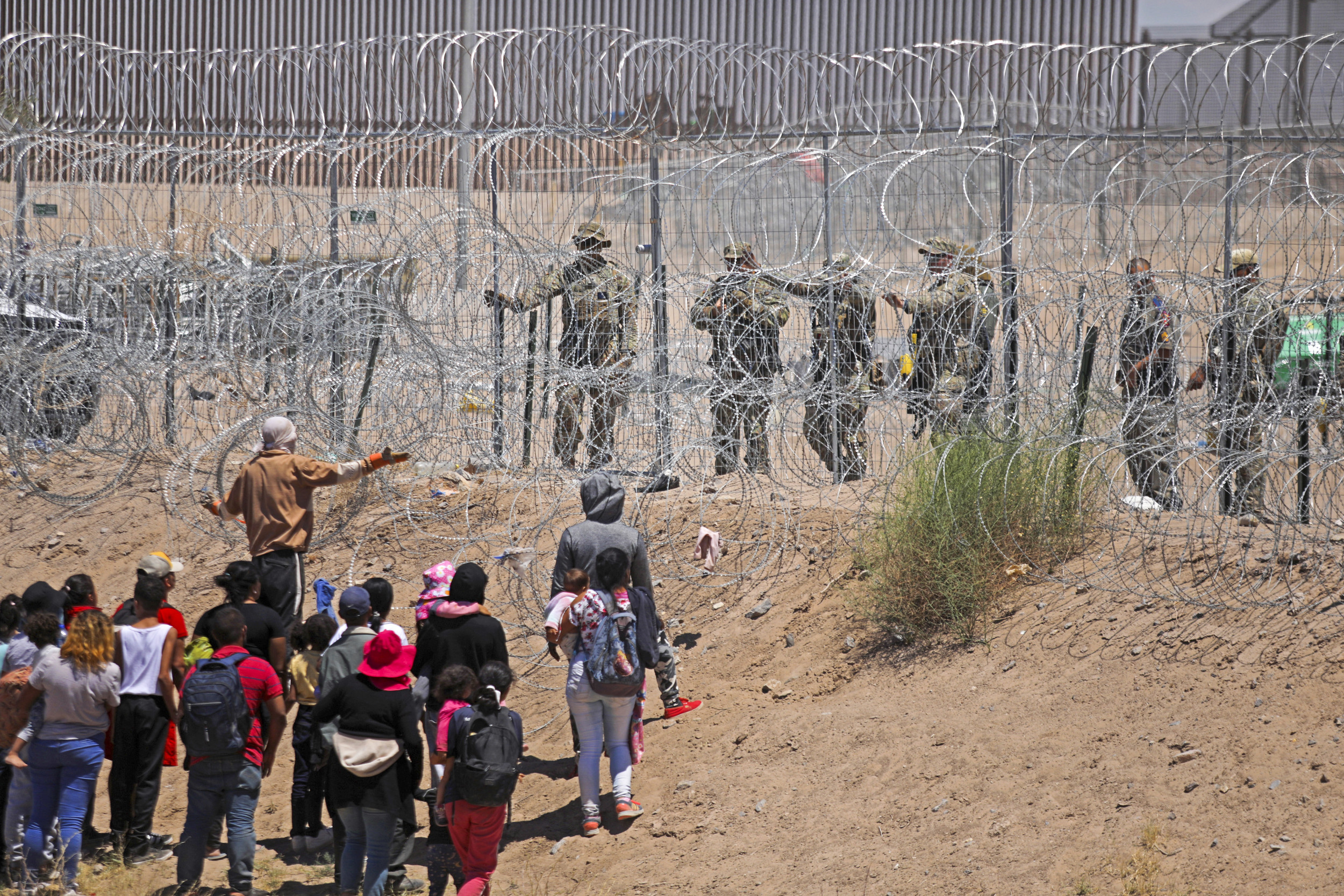A video of Supreme Court Justice Amy Coney Barrett declining to say whether a ban on in vitro fertilization (IVF) treatment would be constitutional during her 2020 confirmation hearing has gone viral on X, formerly Twitter.
It follows the Supreme Court of Arizona ruling on February 16 that frozen embryos should be considered children under state law, in a move that led Alabama's largest hospital to pause IVF treatment, citing fears this could lead to their medical practitioners receiving criminal charges.
On Thursday Kyle Griffin, an executive producer on discussion show The Weekend on MSNBC, shared a clip from Barrett's Senate confirmation hearing, adding: "Flashback: During her confirmation hearing in 2020, Amy Coney Barrett refused to rule out criminalizing IVF."
Flashback: During her confirmation hearing in 2020, Amy Coney Barrett refused to rule out criminalizing IVF. pic.twitter.com/z9ITEZ4qFg
— Kyle Griffin (@kylegriffin1) February 22, 2024
The one minute, 19 second clip received more than 325,000 views and was reposted 2,400 times.
During the hearing Barrett, a Donald Trump appointee, was asked whether "criminalizing" IVF treatment would be legal by Senator Richard Blumenthal, a Connecticut Democrat.
Barrett replied: "Senator I've repeatedly said, as has every other nominee who's sat in this seat, that we can't answer questions in the abstract. That would have to be decided in the course of the judicial process.
"Some legislature would actually have to do that, then litigants would have to come to court, there would have to be briefs and arguments and consultations with colleagues and opinion writing and consideration of precedent, so an off the cuff reaction to that would just circumvent the judicial process."
Newsweek contacted Justice Amy Coney Barrett via an email sent to the Supreme Court public information office at 3.15 a.m. ET on Friday. This article will be updated if she comments.
In its ruling, the Alabama Supreme Court concluded three couples could sue for wrongful death after an accident at a storage facility destroyed their frozen embryos. In reaching this conclusion, the justices cited the state's constitution which, thanks to a 2018 addition, refers to the "rights of the unborn child."
The University of Alabama at Birmingham (UAB) hospital on Wednesday put all IVF treatment on hold in response to the state Supreme Court ruling.
In a statement sent to Newsweek, a spokesperson said: "We are saddened that this will impact our patients' attempt to have a baby through IVF, but we must evaluate the potential that our patients and our physicians could be prosecuted criminally or face punitive damages for following the standard of care for IVF treatments."

President Joe Biden condemned the Alabama Supreme Court's ruling in a statement, commenting: "Today, in 2024 in America, women are being turned away from emergency rooms and forced to travel hundreds of miles for health care, while doctors fear prosecution for providing an abortion. And now, a court in Alabama put access to some fertility treatments at risk for families who are desperately trying to get pregnant.
"The disregard for women's ability to make these decisions for themselves and their families is outrageous and unacceptable."
However speaking to NBC News, Republican presidential candidate Nikki Haley said: "I think embryos, to me, are babies."
Clarifying her position during a later interview with CNN, Haley added: "I didn't say that I agreed with the Alabama ruling. What the question that I was asked is, 'Do I believe an embryo is a baby?' I do think that if you look in the definition, an embryo is considered an unborn baby."
In June 2022, the Supreme Court overturned Roe v. Wade, the landmark 1973 ruling that abortion access was a generally protected right under the U.S. Constitution.
This immediately triggered speculation about whether some states could also ban IVF, in which it is common practice for multiple embryos to be fertilized but only one returned to the woman's womb with the others discarded.
Uncommon Knowledge
Newsweek is committed to challenging conventional wisdom and finding connections in the search for common ground.
Newsweek is committed to challenging conventional wisdom and finding connections in the search for common ground.
fairness meter
To Rate This Article
About the writer
James Bickerton is a Newsweek U.S. News reporter based in London, U.K. His focus is covering U.S. politics and world ... Read more





